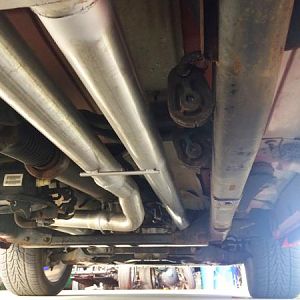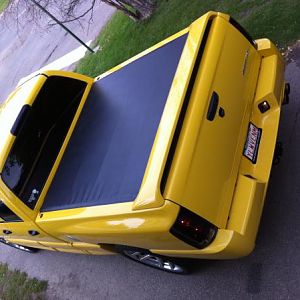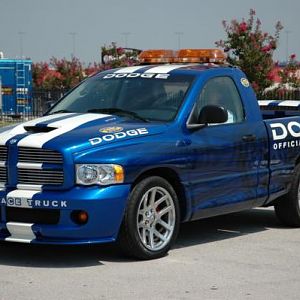ROKTMAN
Full Access Member
The enclosed materials are intended to help you have a vehicle warranty claim denied in circumstances in which an aftermarket product has been used. The information describes the law on vehicle warranties and will provide a
If discussions with the service manager do not bring about a resolution, speak with the owner of the dealership. Many problems can be resolved at this level. If there is a known pattern failure which matches your problem, be sure to bring this to the dealer's attention. The dealer is able to obtain reimbursement from the vehicle manufacturer under such circumstances. If there is no pattern failure, but other evidence that exists contradicts the dealers conclusion, be sure the dealer is made aware of it. Also explain that you are aware of your rights under EPA's emissions warranty and the Magnuson-Moss Warranty Act. Again, if there is a reasonable possibility that either the aftermarket product or its installation could be the cause of the problem, your best bet is to suggest a compromise with the dealer. In many cases, presenting an objective technical assessment and a basic understanding of the law will do the trick.
Get it in Writing
If a dealership denies warranty coverage, they should be willing to do so in writing. Have the dealer describe the failure which is causing your problem AND how the dealer believes the aftermarket product installed is responsible for the problem. Keep an accurate log of all contacts and correspondence in addressing the warranty denial.
Contact the Vehicle Manufacturer's Zone Representative
If a car manufacturer backs your warranty, and you have a dispute with the dealer about either service or coverage, contact the local manufacturer's representative. The local or zone representative has the authority to adjust and make decisions about warranty service remedies or repairs to satisfy customers.
The procedure for contacting your zone representative is usually provided in the vehicle owner's manual. This information can also be obtained from a dealer, or by calling the manufacturer's customer service number, as listed in the carmaker's owner's manual. Present your case to the zone representative. Be sure to indicate how the dealer responded to your information, especially if dealership personnel were notably uncooperative, etc. Once again, be sure to get as much information in writing as you can; request that any determinations or actions which are promised by the zone representative be confirmed by a letter or a fax.
Contact the Vehicle Manufacturer Directly
You may find that contact with the zone representative does not achieve resolve of the matter. If you are still not satisfied, the next step is to contact the vehicle manufacturer directly. Most carmakers maintain a contact office or a special department that is responsible for dealing with warranty issues (see Attachment B).
Local Approaches You Can Try
If you cannot get satisfaction from the dealer, the zone representative or the manufacturer, contact one or all of the following:
* Better Business Bureau
* State Attorney General
* Local Department of Motor Vehicles
* State Consumer Protection Office
Many states also have county and city offices that intervene or mediate on behalf of individual consumers to resolve complaints.
You also might consider using a dispute resolution organization to arbitrate your disagreement if you and the dealer are willing. Under the terms of many warranties, this may be a required first step before you can sue the dealer or manufacturer. Check your warranty to see if this is the case.
National Approaches You Can Try
Since the manufacturer's failure to honor the terms of the warranty may be a violation of federal law, you can pursue the issue with the appropriate federal agency.
You can call or write the Federal Trade Commission (FTC) and ask for assistance on non-emission-related problems. Input from consumers is very important to the work of the FTC. These contacts with consumers are often the first indication of a problem in the marketplace and may provide initial evidence to begin an investigation. Although the agency cannot act to resolve individual problems, it can act when it sees a pattern of possible law violations. FTC, Washington, D.C.: 202/326-3128.
The FTC also maintains regional offices to field consumer complaints. For the telephone number to one near you, see Attachment B.
In the case of a problem with an emission-related component, the Environmental Protection Agency (EPA) is the organization to contact. A pamphlet published by the EPA on emissions warranty matters called "What You Should Know About Your Auto Emissions Warranty," can help explain your options. In essence, the EPA requires that you exhaust all of your options with the vehicle manufacturer before you contact the Agency. In all cases, you must correspond with the EPA in writing. You must also provide copies of all correspondence with the dealer and manufacturer, as well as any independent evidence you may have that describes the cause of the problem. The better you are able to make your case that an aftermarket part was not the cause of the failure, the more likely you are to get EPA's help. The EPA is particularly interested in any evidence of a pattern failure being involved.
Warranty Complaint Field Operations and Support Division (EN-397F), U.S. Environmental Protection Agency, Washington, D.C. 20460. Telephone: 202/233-9040 or 202/233-9100.
You can also call the Bureau of Consumer Protections Office of Consumer & Business Education in Washington, D.C., at 202/326-3650.
Final Steps
The Magnuson-Moss Warranty Act may also be helpful. Under this federal law, you can sue on breach of express and implied warranties. The main point of interest here is that the Act says warranty coverage may not be conditioned upon the use of only the vehicle manufacturer's parts unless the parts are provided free of charge. In other words, use of a non-carmaker product should not void your warranty unless it caused the problem.
Obviously, litigation can involve considerable time and expense on your part. However, if the cost of the warranty claim is high enough, this may be an option to consider. Any such lawsuit or claim would have to be fought on the unique merits of the case and we recommend that you consider finding qualified legal counsel familiar with this area of law. In some cases, the filing of a lawsuit may encourage a settlement of the dispute. You should also be particularly aware of the fact that once you file a lawsuit or claim against the dealer or manufacturer, your vehicle and your documentation may become material evidence and may be subject to inspection and reviews in the lawsuit.
You can also consider going to small claims court, where you can resolve disputes involving small amounts of money for a low cost. The clerk of your local small claims court can tell you how to file a suit and what the dollar limit is in your state. Again, this action will sometimes lead the parties to settle the dispute.
No matter which steps you undertake, always approach the situation in a professional manner. Fits of anger, shouting, threats and the like seldom accomplish anything other than aggravating the situation. The best strategy is to stay calm and tactfully demonstrate your knowledge of your rights and potential courses of action.
In most cases, it will not be necessary to go through the entire process described here. What you will normally find is that you will be able to resolve your situation at a fairly early stage if you have the proper information in written form and you approach the issue in a calm, professional manner.
__________________
If discussions with the service manager do not bring about a resolution, speak with the owner of the dealership. Many problems can be resolved at this level. If there is a known pattern failure which matches your problem, be sure to bring this to the dealer's attention. The dealer is able to obtain reimbursement from the vehicle manufacturer under such circumstances. If there is no pattern failure, but other evidence that exists contradicts the dealers conclusion, be sure the dealer is made aware of it. Also explain that you are aware of your rights under EPA's emissions warranty and the Magnuson-Moss Warranty Act. Again, if there is a reasonable possibility that either the aftermarket product or its installation could be the cause of the problem, your best bet is to suggest a compromise with the dealer. In many cases, presenting an objective technical assessment and a basic understanding of the law will do the trick.
Get it in Writing
If a dealership denies warranty coverage, they should be willing to do so in writing. Have the dealer describe the failure which is causing your problem AND how the dealer believes the aftermarket product installed is responsible for the problem. Keep an accurate log of all contacts and correspondence in addressing the warranty denial.
Contact the Vehicle Manufacturer's Zone Representative
If a car manufacturer backs your warranty, and you have a dispute with the dealer about either service or coverage, contact the local manufacturer's representative. The local or zone representative has the authority to adjust and make decisions about warranty service remedies or repairs to satisfy customers.
The procedure for contacting your zone representative is usually provided in the vehicle owner's manual. This information can also be obtained from a dealer, or by calling the manufacturer's customer service number, as listed in the carmaker's owner's manual. Present your case to the zone representative. Be sure to indicate how the dealer responded to your information, especially if dealership personnel were notably uncooperative, etc. Once again, be sure to get as much information in writing as you can; request that any determinations or actions which are promised by the zone representative be confirmed by a letter or a fax.
Contact the Vehicle Manufacturer Directly
You may find that contact with the zone representative does not achieve resolve of the matter. If you are still not satisfied, the next step is to contact the vehicle manufacturer directly. Most carmakers maintain a contact office or a special department that is responsible for dealing with warranty issues (see Attachment B).
Local Approaches You Can Try
If you cannot get satisfaction from the dealer, the zone representative or the manufacturer, contact one or all of the following:
* Better Business Bureau
* State Attorney General
* Local Department of Motor Vehicles
* State Consumer Protection Office
Many states also have county and city offices that intervene or mediate on behalf of individual consumers to resolve complaints.
You also might consider using a dispute resolution organization to arbitrate your disagreement if you and the dealer are willing. Under the terms of many warranties, this may be a required first step before you can sue the dealer or manufacturer. Check your warranty to see if this is the case.
National Approaches You Can Try
Since the manufacturer's failure to honor the terms of the warranty may be a violation of federal law, you can pursue the issue with the appropriate federal agency.
You can call or write the Federal Trade Commission (FTC) and ask for assistance on non-emission-related problems. Input from consumers is very important to the work of the FTC. These contacts with consumers are often the first indication of a problem in the marketplace and may provide initial evidence to begin an investigation. Although the agency cannot act to resolve individual problems, it can act when it sees a pattern of possible law violations. FTC, Washington, D.C.: 202/326-3128.
The FTC also maintains regional offices to field consumer complaints. For the telephone number to one near you, see Attachment B.
In the case of a problem with an emission-related component, the Environmental Protection Agency (EPA) is the organization to contact. A pamphlet published by the EPA on emissions warranty matters called "What You Should Know About Your Auto Emissions Warranty," can help explain your options. In essence, the EPA requires that you exhaust all of your options with the vehicle manufacturer before you contact the Agency. In all cases, you must correspond with the EPA in writing. You must also provide copies of all correspondence with the dealer and manufacturer, as well as any independent evidence you may have that describes the cause of the problem. The better you are able to make your case that an aftermarket part was not the cause of the failure, the more likely you are to get EPA's help. The EPA is particularly interested in any evidence of a pattern failure being involved.
Warranty Complaint Field Operations and Support Division (EN-397F), U.S. Environmental Protection Agency, Washington, D.C. 20460. Telephone: 202/233-9040 or 202/233-9100.
You can also call the Bureau of Consumer Protections Office of Consumer & Business Education in Washington, D.C., at 202/326-3650.
Final Steps
The Magnuson-Moss Warranty Act may also be helpful. Under this federal law, you can sue on breach of express and implied warranties. The main point of interest here is that the Act says warranty coverage may not be conditioned upon the use of only the vehicle manufacturer's parts unless the parts are provided free of charge. In other words, use of a non-carmaker product should not void your warranty unless it caused the problem.
Obviously, litigation can involve considerable time and expense on your part. However, if the cost of the warranty claim is high enough, this may be an option to consider. Any such lawsuit or claim would have to be fought on the unique merits of the case and we recommend that you consider finding qualified legal counsel familiar with this area of law. In some cases, the filing of a lawsuit may encourage a settlement of the dispute. You should also be particularly aware of the fact that once you file a lawsuit or claim against the dealer or manufacturer, your vehicle and your documentation may become material evidence and may be subject to inspection and reviews in the lawsuit.
You can also consider going to small claims court, where you can resolve disputes involving small amounts of money for a low cost. The clerk of your local small claims court can tell you how to file a suit and what the dollar limit is in your state. Again, this action will sometimes lead the parties to settle the dispute.
No matter which steps you undertake, always approach the situation in a professional manner. Fits of anger, shouting, threats and the like seldom accomplish anything other than aggravating the situation. The best strategy is to stay calm and tactfully demonstrate your knowledge of your rights and potential courses of action.
In most cases, it will not be necessary to go through the entire process described here. What you will normally find is that you will be able to resolve your situation at a fairly early stage if you have the proper information in written form and you approach the issue in a calm, professional manner.
__________________





